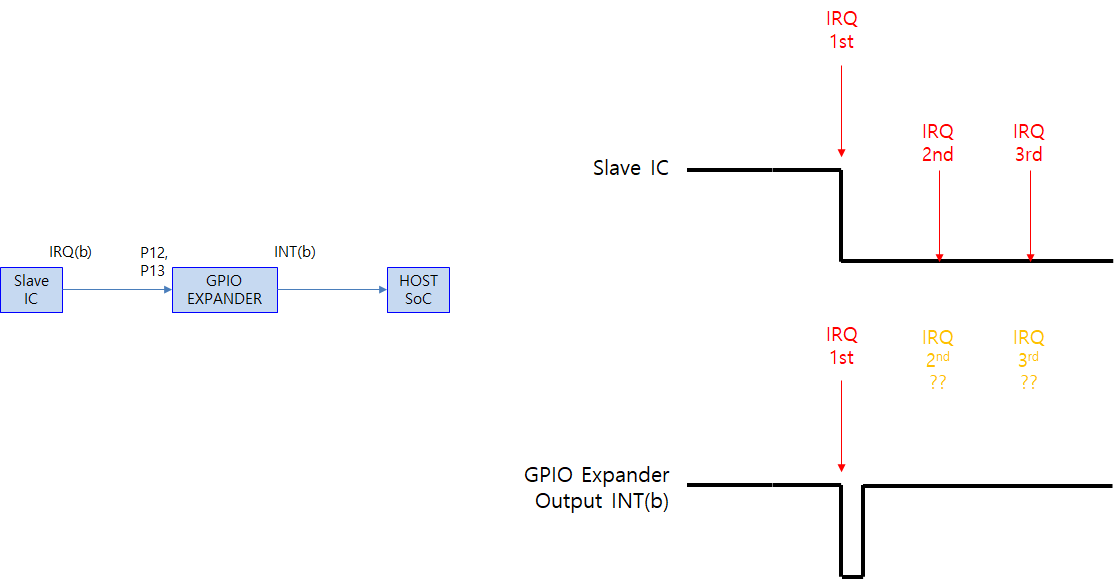Other Parts Discussed in Thread: TCA9539
Hi,
current system is configured like below. (in the middle of GPIO Expander: TCA9539)
but, in HOST SoC, I think, it seems like, SoC doesn't receive every IRQ from Slave IC.
and I have several questions :
q1) GPIO expander can make IRQ output about every rising / falling edge, in default register setting ?
q2) If the IRQ of slave IC (GPIO expander input) keeps going on LOW,
GPIO Expander cannot make IRQ output ?
q3) is there any recommendation for related register ?
Thanks.


